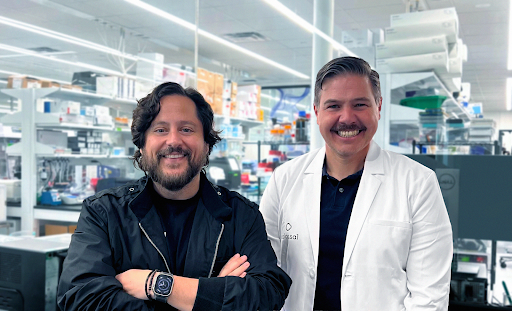Colossal Biosciences Launches Australian Headquarters, Appoints De-Extinction Biology Pioneer Dr. Andrew Pask as Chief Biology Officer

Colossal Biosciences, the company who recently de-extincted the direwolf, and is working to de-extinct the woolly mammoth, thylacine, moa, and dodo, has announced a major expansion with the launch of its Australian headquarters and the appointment of world-renowned developmental biologist Dr. Andrew Pask as Chief Biology Officer.
Pask, who currently leads the Thylacine Integrated Genomic Restoration Research Lab (TIGGR) at the University of Melbourne, is recognized globally for his expertise in de-extinction science, developmental genetics, and conservation technologies. He has received international acclaim for his contributions to marsupial biology, including understanding their evolution and adaptation, and is one of the pioneers of de-extinction technologies. His lab has been a long-time partner of Colossal and will now formally integrate into the newly launched Colossal Australia under a new agreement with the University of Melbourne.
"We are doubling down on our commitment to Australia, New Zealand, and Tasmania by locating our headquarters in Melbourne and bringing on Dr. Andrew Pask," said Ben Lamm, CEO of Colossal Biosciences. "We understand the importance of maintaining the ecological diversity of island ecosystems, believe our science can speed up efforts, and want to stand firmly behind the people of this region as we do so."
In his new role, Pask will oversee Colossal Australia, global embryology programs, and exogenous development systems, reporting directly to Colossal Chief Science Officer Dr. Beth Shapiro. All Colossal-affiliated research at the University of Melbourne including the thylacine de-extinction project, Northern quoll cane toad resistance efforts, native frog and bird conservation programs, and artificial womb development will be consolidated under this new business entity.
Pask's appointment as Chief Biology Officer brings this suite of expertise to all Colossal's de-extinction and conservation projects and underscores commitment to translational science that bridges academic research and real-world impact.
"This is an extraordinary opportunity to help shape the future of de-extinction science," said Pask. "Colossal is uniting the brightest minds, boldest ideas, and most powerful tools in biotechnology. I'm thrilled to lead this team at the forefront of research — not just to bring back lost species, but to deploy these technologies to protect those still with us."
"This is a big step forward for the company," said Chief Science Officer at Colossal Dr. Beth Shapiro. "And, will accelerate our ability to drive real-world impact while solving some of the hardest problems in biology today."
© Copyright IBTimes 2025. All rights reserved.




















